ZMINA: Rebuilding - Kino Guarimba: Place with the movie soul
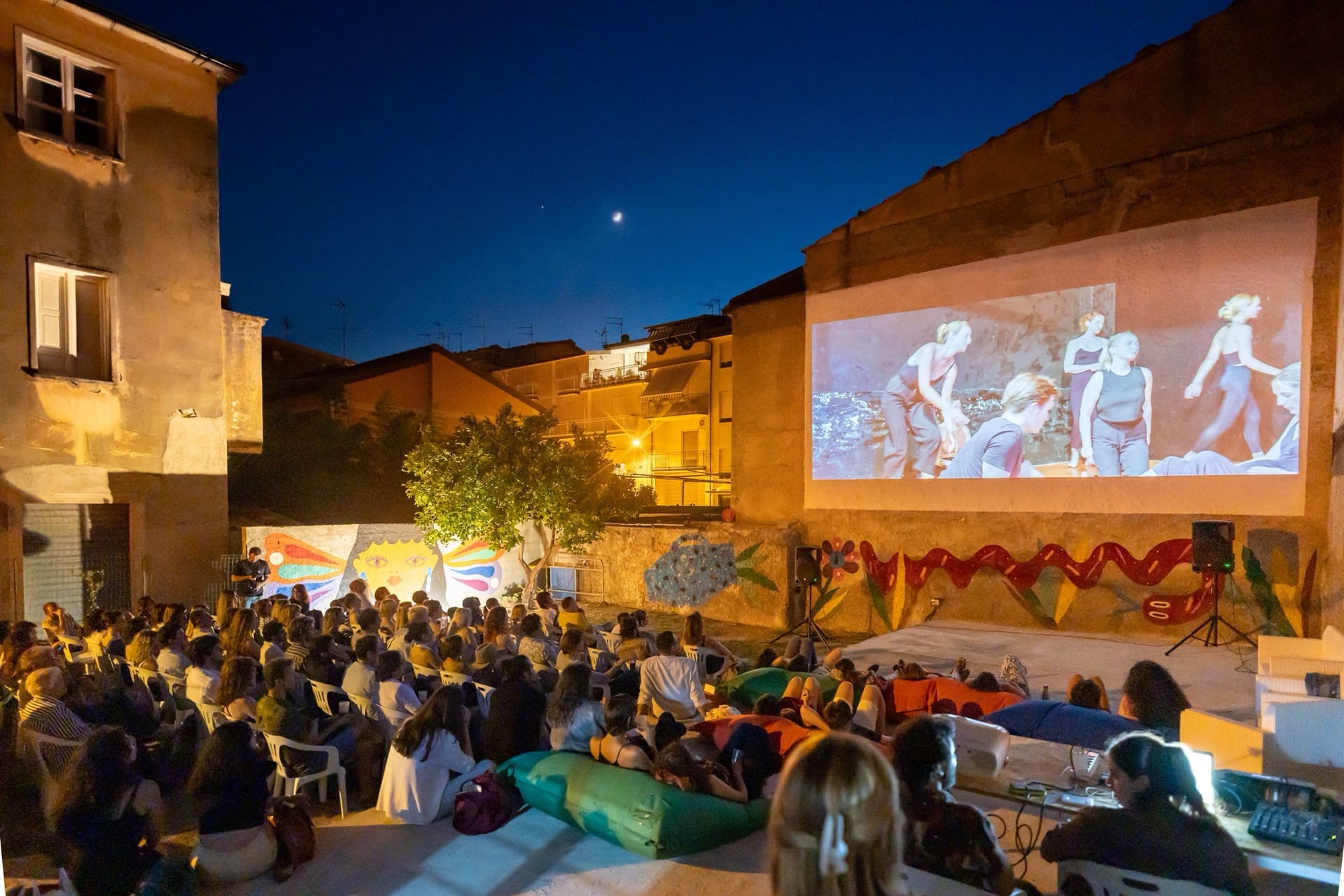
Kino Guarimba – a festival connecting communities, art, and culture from around the world. Founded in 2012 in the Italian town of Amantea, the project has become a symbol of independent cinema and a platform for young creators. One of the organizers and co-founders of the entire La Guarimba Organisation is Ernesto Garrido, with whom we spoke about the latest edition of the festival.
What inspired you to focus on the restoration of the Ukrainian cultural sector in this edition?
I personally knew about Ukraine because I was raised in Venezuela and both our people have in common the fight for freedom. During the protests against the Hugo Chávez government, we became aware of the Ukrainain fight for freedom. Years after that, in 2016, I went to Ukraine for the first time and I had the opportunity to meet the cultural sector and fell in love with their people, their ideals and their culture.
How did you manage to bring together participants from different countries and cultures in the residency program?
We are very good at communication. We have partnered up with several festivals and universities that have allowed us to spread the word. We also use more independent channels like Telegram groups. But I think what lets us attract so many people is the programme per se. We have an amazing training programme that works very well on an individual and on a collective level. It is not that easy to find something this unique. And, of course, the fact to organise it in a dreamlike town of Southern Italy helps!
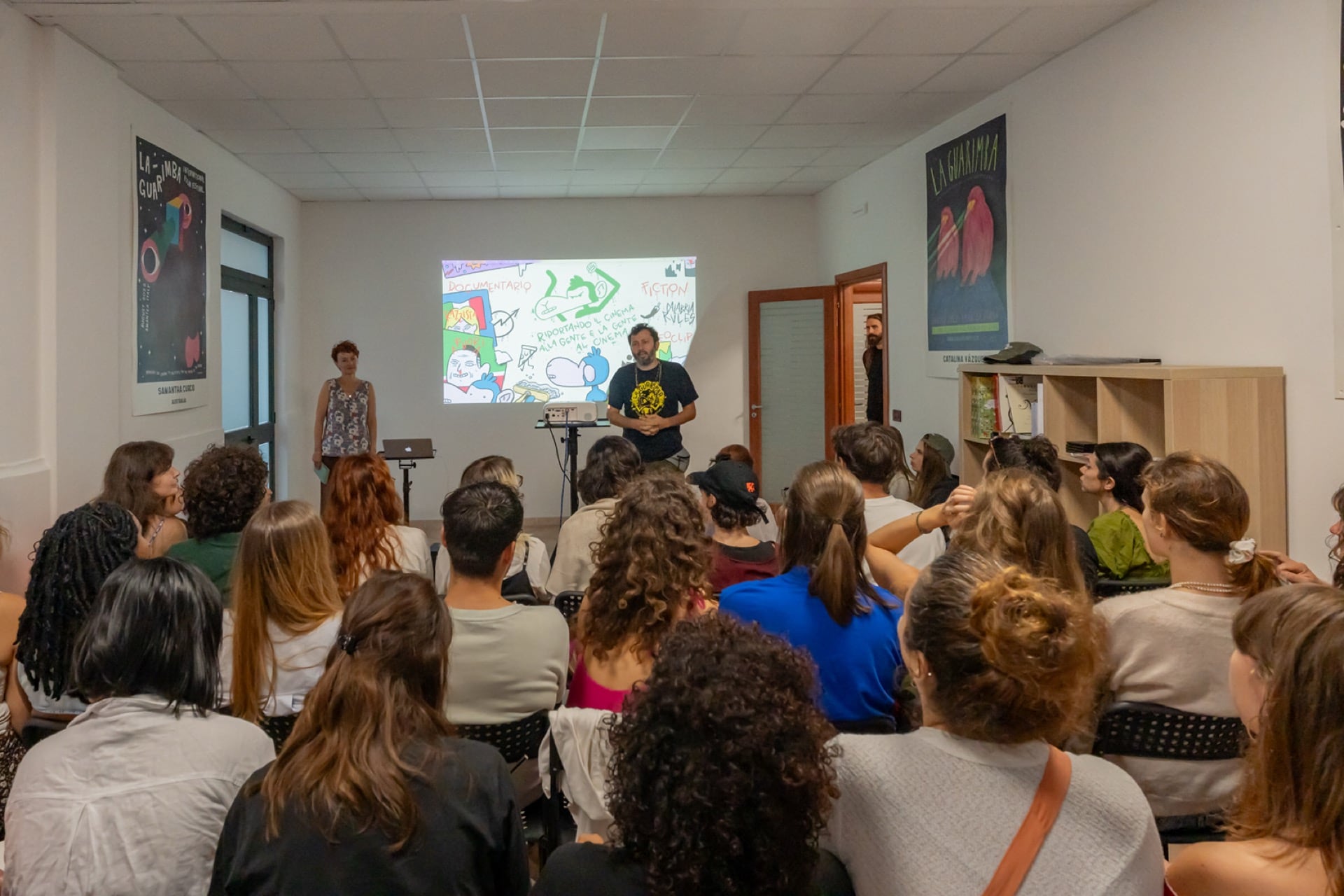
What criteria did you use to select the participants?
We like to mix professionals with amateurs, youth and adults, and we love to have a wide representation of countries.The first step is an online form with questions about their skills and their personalities. We value a lot of character and motivation.
What message did the participants aim to convey through their films?
There is never the same message. Usually there is a collage of themes from intimate portraits to documentaries about the people of the town. We have had music videos, experimental films, western comedies, horror, animation films, musicals, poems. The beauty of Kino Guarimba is the freedom to find your inner voice.
How did the local community in Amantea respond to this project? Did you receive any feedback from the residents?
We have a particular way to include the locals. One of the days of the residency, we organise the “Popular Casting”, an event that connects locals who want to be actors and the filmmakers who are looking for stories. And on the last day of the residency, we screen all the films and the locals who act and their families can watch themselves on the big screen. This has been a very important tool for kids to approach moviemaking and for adults to fight loneliness and meet new cultures.
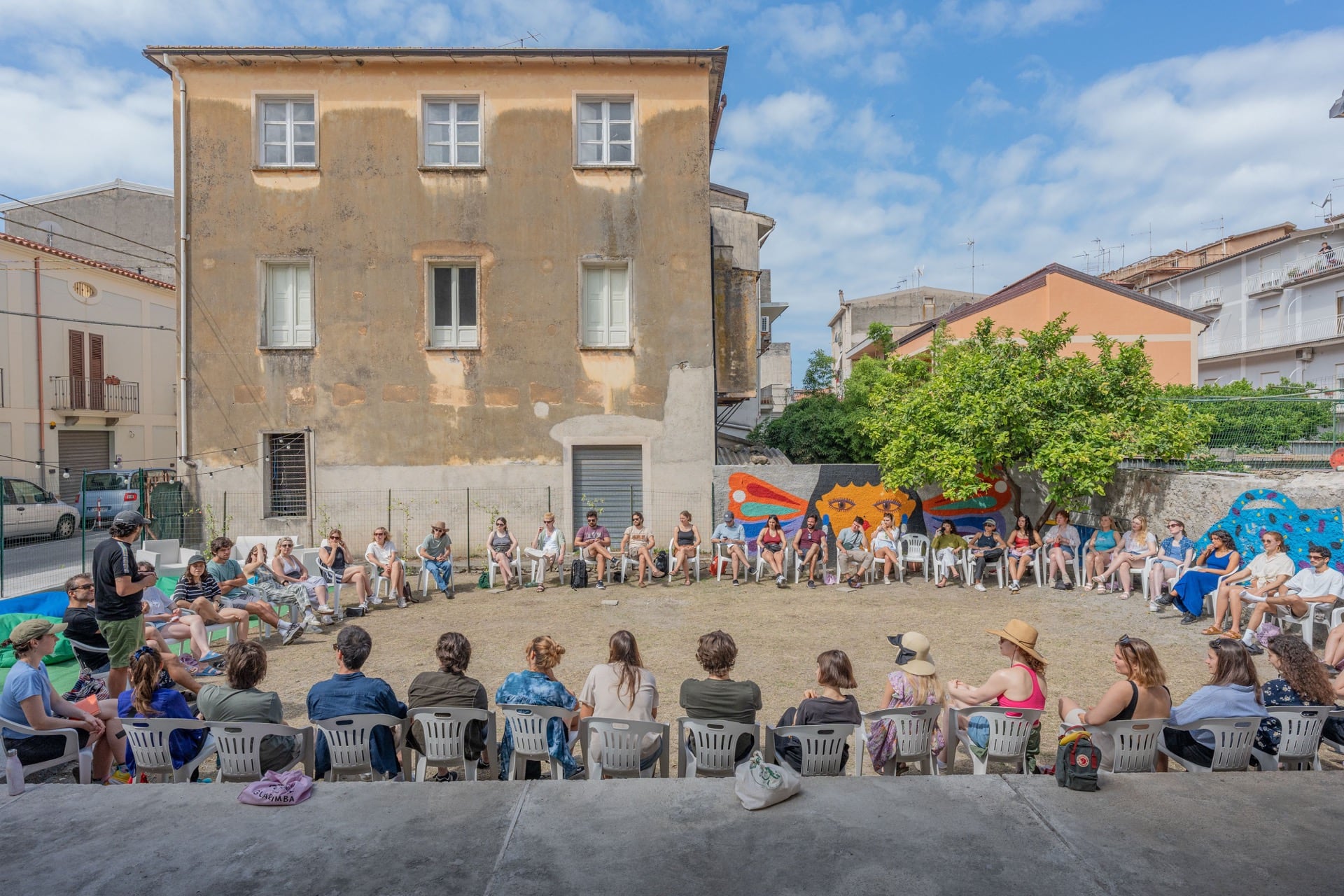
How important were partnerships with organizations like AmaTea or the Ministry of Culture of Taiwan?
It was essential to have them on board. With the Ministry of Culture of Taiwan we were able to create a scholarships programme for June 2024. We have 5 scholarships to 5 Taiwanese female artists. And with AmaTea we made a project to give 10 scholarships for Ukrainian filmmakers. For us, giving opportunities is essential. And bringing artists from different continents to our little town is what makes this project so rich and beautiful.
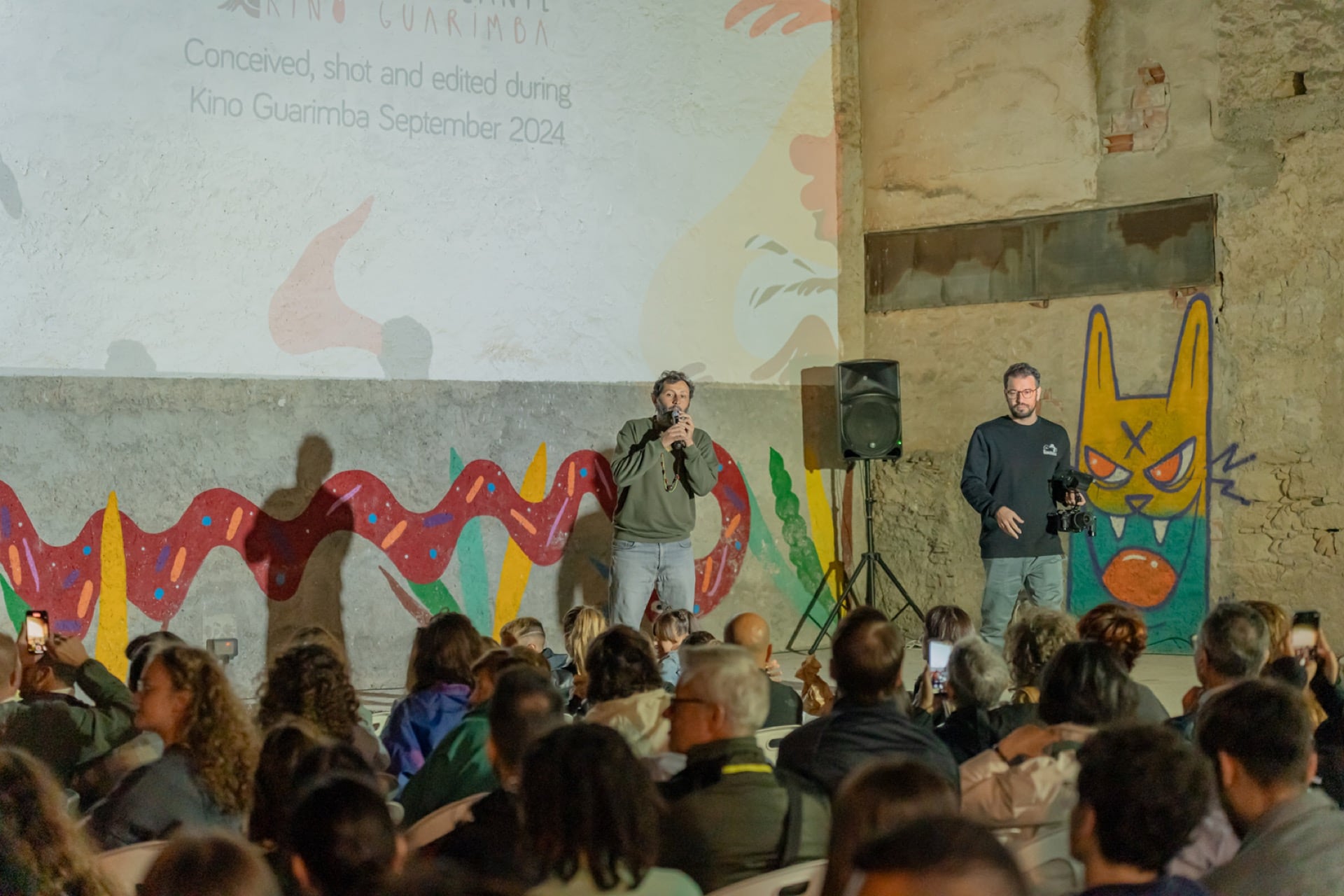
What moment from this year's edition will stay with you the most?
I think Oriana’s film. Oriana Martínez is a filmmaker who came from Venezuela with a scholarship we gave with the Caribe Atómico Film Festival, a film festival we have been organising in Caracas since 2023. She came without knowing much English but she quickly made a crew with a Tanzanian, a Turkish, a Colombian and with my father as lead actor!
What are your plans for the next editions of the Kino Guarimba project?
We are working on two residencies for 2025: one in June and one in September.
Have you received any feedback on the final films yet?
Of course! There have already been awards and screenings of the films around the world. Mounir Derbal, a filmmaker from Rome, screened his Kino film last Sunday in Rome. And Ukrainian filmmaker Olga Chernyk, a Kino Guarimba alumni, last year premiered the beautiful “A Picture to Remember” widely recognized around the world.
What themes were most frequently represented in the final projects?
There are a lot of intimate stories exploring the human condition, a lot of clichés about what Italy is, and, depending on the year and how the world goes, there is always a point of actuality. We had a lot of films about the migrant crisis, about feminism, about the war on Ukraine, about the war on Gaza.
What would you like to change or improve in future editions of the program?
There are so many great ideas we want to try but we don’t have the funding. Actually, right now the programme is at risk as we are underfunded and these kinds of programmes are not something that institutions and governments want to fund. It appears to me that we prefer to invest money in security through weaponry and hate. So my plans for the immediate future are looking for the money to keep this process going.
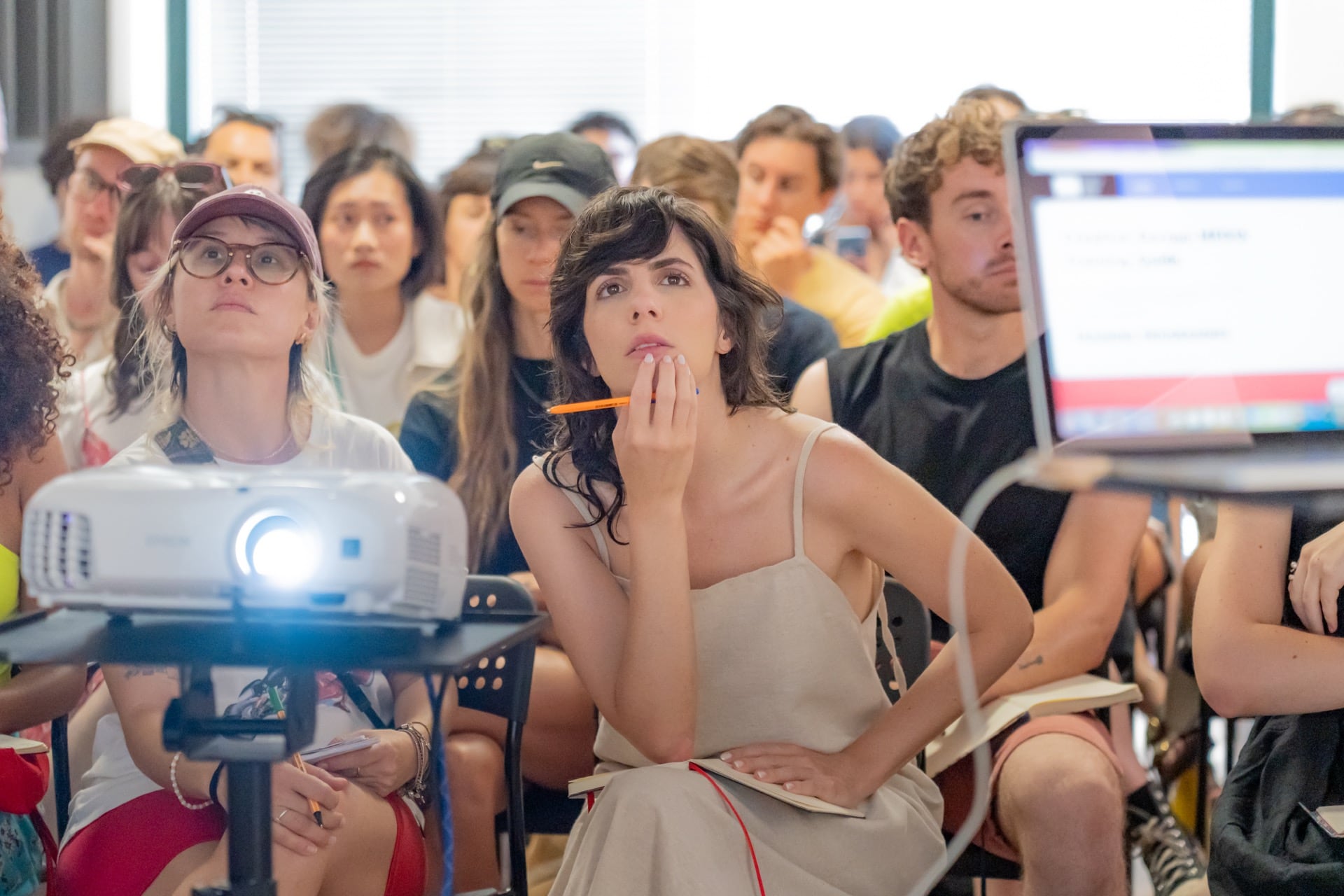
Is Kino Guarimba a tool for bringing cultures together during times of global conflict?
It is one of the most important art programmes to achieve empathy, love and knowledge. We make every year a selection with people from different religions, countries, languages, skin color, gender, age. All this is because we are looking for conflicts that are rising so we can face them and discuss them, so we can look into our eyes and see each other as humans with differences and not as enemies to destroy.
Do you plan to expand the project to other countries or regions facing similar challenges?
We would love to bring this successful program to other countries if that possibility comes up.
ZMINA: Rebuilding is a project co-funded by the EU Creative Europe Programme under a dedicated call for proposals to support Ukrainian displaced people and the Ukrainian Cultural and Creative Sectors. The project is a cooperation between IZOLYATSIA (UA), Trans Europe Halles (SE) and Malý Berlín (SK).